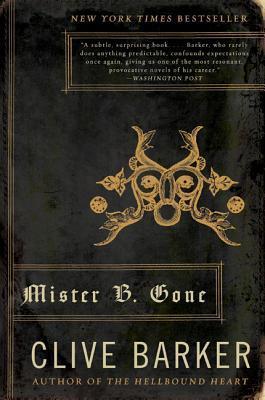
Books of Blood, Volumes 1-6
Book Description
Whispers of the damned echo through the pages of Clive Barker’s 'Books of Blood, Volumes 1-6,' where each story is a chilling descent into the darkest corners of the human psyche. Join an unforgettable cast of characters as they confront their innermost fears, grapple with monstrous transformations, and navigate the thin line between desire and dread. From haunted dreams to twisted realities, every tale pulses with visceral tension and relentless suspense. What horrors lurk in the shadows of your own mind, waiting to be unleashed?
Quick Book Summary
"Books of Blood, Volumes 1-6" is Clive Barker's seminal collection of horror short stories, renowned for pushing the boundaries of terror and imagination. Through a diverse range of tales, Barker explores human frailty, monstrous metamorphoses, and the porous veil between reality and the supernatural. His stories evoke visceral chills, psychological dread, and an unsettling fascination with the macabre. Characters face nightmarish scenarios—some of their own making, others thrust upon them—while uncovering dark truths about themselves and the world. Barker's prose is vivid, grotesque, and poetic, transforming each narrative into a unique exploration of fear, violence, desire, and transformation. The collection stands as a masterwork of contemporary horror, subverting expectations with each terrifying twist.
Summary of Key Ideas
Table of Contents
Exploration of Fear and Human Nature
Barker's stories are deeply rooted in the exploration of primal fear and the mysteries of the human condition. He crafts scenarios that force ordinary people to confront terrifying situations, shining a light on the fragility of sanity and the rawness of existential dread. Recurring themes include the inescapability of fate, the horror of the unknown, and the notion that the true monsters often reside within us. Through his chilling narratives, Barker presents fear not just as an emotion but as a transformative force that reveals the deepest parts of the human soul.
Transcending the Boundaries of Reality
The stories in "Books of Blood" consistently blur the boundaries between reality and nightmare, subverting conventional understandings of time, space, and logic. In these tales, the supernatural can intrude at any moment, often rendering the familiar utterly alien. Barker melds fantasy and horror, using the fantastical to highlight real-world anxieties and taboos. This interplay keeps readers off balance, creating an atmosphere of relentless suspense and wonder at what might lurk just beneath the surface of the everyday.
Transformation and Monstrosity
A recurring motif in the collection is physical and psychological transformation, where victims and aggressors alike undergo monstrous changes that are as symbolic as they are literal. These metamorphoses reflect internal conflicts—desires repressed, guilts buried, and fears unspoken. Barker delves into the grotesque, depicting bodily horror as a manifestation of psychological trauma or corrupted ambition. Each transformation serves as a metaphor for change, decay, and the potential for rebirth through pain.
Desire, Obsession, and the Macabre
Many stories delve into themes of obsession and desire, with characters driven to extremes by forbidden cravings or dark fixations. Barker examines the fine line between ecstasy and agony, showing how the pursuit of pleasure or understanding can descend into depravity or madness. The macabre becomes a mirror for characters’ deepest yearnings, exposing how far people will go to fulfill their needs, and the price they must pay for transgressing social and moral boundaries.
The Intersection of the Mundane and the Supernatural
Ultimately, what sets "Books of Blood" apart is its grounding of supernatural horror in the banality of everyday existence. Barker excels at placing terrors within mundane settings—a suburban home, a city street, a familiar face—thereby intensifying the sense of unease. By doing so, he suggests that horror is not a distant or isolated occurrence, but a lurking presence always waiting to seep into our lives. This merging of the ordinary and the uncanny makes the collection a lasting, unsettling masterpiece.
Download This Summary
Get a free PDF of this summary instantly — no email required.





